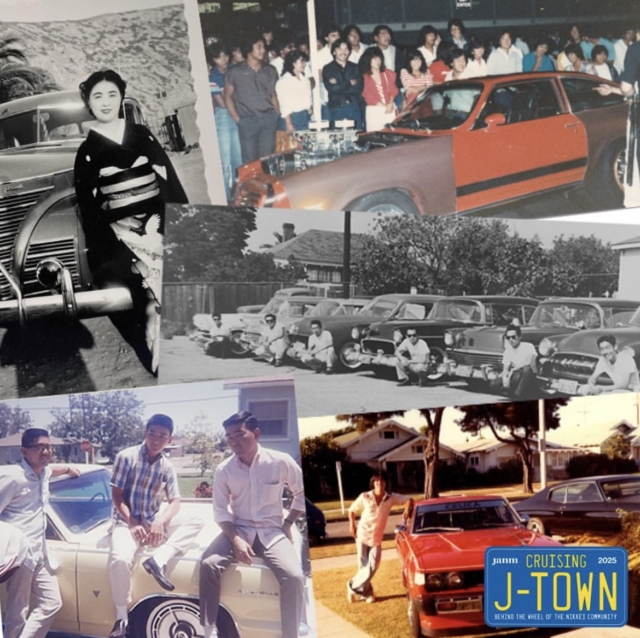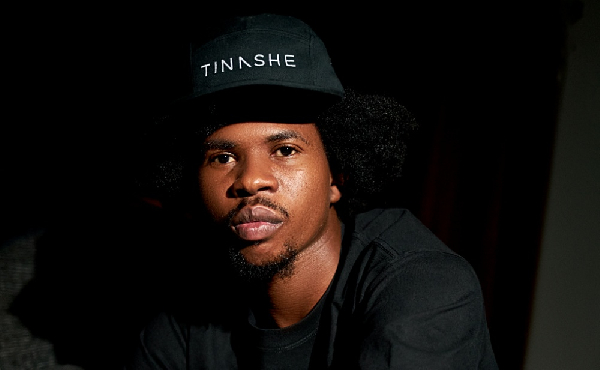'Cruising J-Town' museum exhibit spotlights a pivotal chapter in car culture
We suspect that many JNC readers were introduced to the wonders of Japanese cars during the Tuner Era of the late 80s and early 90s. The souped up imports that took over the streets triggered a paradigm shift in American car culture, but the roots of the movement, which stretch back over a century, have largely been lost to time. A new exhibit at the Japanese National American Museum rectifies that oversight by delving into the rich of Japanese American car culture.
Cruising J-Town: Behind the Wheel of the Nikkei Community takes audiences on a journey that begins at the dawn of the twentieth century. From the work and farm trucks of working class immigrants to the Detroit iron of postwar hot rodders, to the tuned sport compacts of the import tuning era, the exhibit spans 110 years of history.
Why did there seem to be such an affinity to modifying cars within the Japanese American community? There are countless stories — the groundbreaking Hirohata Merc, Larry Shinoda’s “Chopsticks Special” winning at the first-ever NHRA Nationals, the street racing pioneers who popularized the customization of Datsuns and Toyotas in the US, and more.
We spoke with the exhibit’s curator, Oliver Wang, a professor of sociology at Cal State Long Beach, who takes an anthropologist’s lens to the culture of hot rods and street racing. “As mostly working class community in early twentieth century, cars and trucks were enormously important to how Japanese Americans made their livelihoods,” Wang told us. Southern California was home the largest Japanese American populations in the US. “There were gardeners, farmers, gas station owners. Naturally, they and their kids developed a penchant for working on cars.”
While conducting research for the exhibit, Wang spoke to the wife of Tats Gotanda, owner of the famed Buddha Buggy, a ’59 Impala that is sometimes credited as being among the first lowriders ever built. She revealed an aspect of Japanese American car culture that came to be one of his favorite stories in Cruising J-Town: “She said, ‘Did I mention my dad had one of the first fish trucks in LA?’ I was like, ‘What are you talking about?'”
After Japanese Americans returned from World War II internment camps, they settled across the greater Los Angeles area. However, the primary fish markets were still downtown. “The fish trucks, six days a week, would fill up with ice, buy fish from downtown wholesalers, get rice, jerky, and other Japanese foods, and blanket the Southland delivering them door to door,” Wang said. “They served housewives, aging issei (first-generation immigrants) who were no longer driving, or those who were afraid to go out because of internment.”
The last food trucks stopped operating in the early 90s, Wang explained. The fish truck drivers retired with no one to replace them. At the same time, Japanese supermarkets like Marukai, Mitsuwa and Nijiya began cropping up in LA suburbs. “It’s not as sexy as lowered Hondas,” Wang joked, “but it embodies the spirit of the exhibit. No one would ever know this unless they lived in the community.”
The work trucks led to hot rods, which led to car clubs. Countless crews sprung up across the greater LA area, from the South Bay to the Valley, South Central to the East Side. Street races, cruises, and rivalries became a defining part of the car culture, which culminated in a yearly gathering called the Nisei Week Cruise.
Little Tokyo’s Nisei Week summer festival in August is the biggest community event of the year, an Americanized version of the obon celebrations in Japan. In the early 70s, car clubs began bringing their rides to the festivities, using the summer to prepare their cars.
“Hundreds of cars, trucks, and motorcycles would swarm Little Tokyo, and thousands of people came to watch” Wang describes the event as their Superbowl. “It was a generational touchstone. If you were a Japanese American young person coming of age, you didn’t have to be a car person, but you couldn’t avoid the Nisei Week Cruise it because it was such a spectacle.” He adds that the cruise served as a window into the evolution of car culture. “At early ones you’d see Camaros, Vegas, and El Caminos. By the 80s it was Toyotas, Datsuns, and Hondas.”
Cruising J-Town is the first exhibit of its kind, but it’s not just for gearheads. “It’s not a show about Japan, Japanese culture, or Japanese cars,” Wang stresses. “First and foremost, it’s a show about the Japanese American community in LA and its relationship to the world of cars. That includes domestics, JDM, and Euros. It’s about hot rodders, street racers, and tuners, gardeners, car designers and drift racers and all the ways cars have factored into their working life, family life, friendships.”
Cruising J-Town opens from July 31 to November 12, 2025 and will be located at the Peter and Merle Mullin Gallery at the Art Center College of Design, 1111 South Arroyo Parkway, Pasadena, CA 91105. If you can’t make it, Wang has published a book as well, called Cruising J-Town: Japanese American Car Culture in Los Angeles that is available from the JANM website.
You may also like...
Diddy's Legal Troubles & Racketeering Trial

Music mogul Sean 'Diddy' Combs was acquitted of sex trafficking and racketeering charges but convicted on transportation...
Thomas Partey Faces Rape & Sexual Assault Charges

Former Arsenal midfielder Thomas Partey has been formally charged with multiple counts of rape and sexual assault by UK ...
Nigeria Universities Changes Admission Policies

JAMB has clarified its admission policies, rectifying a student's status, reiterating the necessity of its Central Admis...
Ghana's Economic Reforms & Gold Sector Initiatives

Ghana is undertaking a comprehensive economic overhaul with President John Dramani Mahama's 24-Hour Economy and Accelera...
WAFCON 2024 African Women's Football Tournament

The 2024 Women's Africa Cup of Nations opened with thrilling matches, seeing Nigeria's Super Falcons secure a dominant 3...
Emergence & Dynamics of Nigeria's ADC Coalition

A new opposition coalition, led by the African Democratic Congress (ADC), is emerging to challenge President Bola Ahmed ...
Demise of Olubadan of Ibadanland
Oba Owolabi Olakulehin, the 43rd Olubadan of Ibadanland, has died at 90, concluding a life of distinguished service in t...
Death of Nigerian Goalkeeping Legend Peter Rufai

Nigerian football mourns the death of legendary Super Eagles goalkeeper Peter Rufai, who passed away at 61. Known as 'Do...





